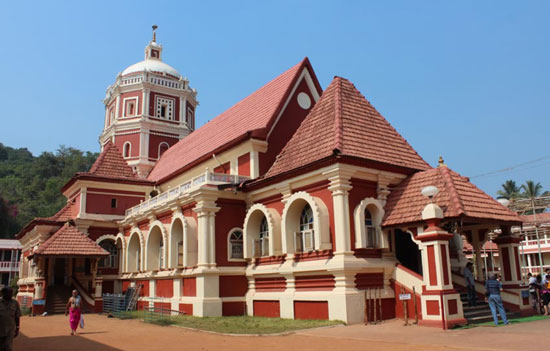- A simple FAQ on
the various provisions w.r.t Marriage and Divorce law as per the Civil Code in
Goa.
The Civil Code in
Goa was introduced by the Portuguese which was adopted from their legal system.
It is a Uniform Code that is applicable to all the residents of Goa. After the liberation
of Goa from the Portuguese the Uniform Civil Code was made applicable to the
State of and people of Goa.
The Code and
Decree no.1 dated 25.10.1910 covers various legal aspects like Inventory,
Marriage, Divorce, Annulment of Marriage, Succession, Will, Property, etc. The Portuguese Civil Code 1867 was given legal
sanctity by Section 5(1) of the Goa, Daman and Diu Administration Act, 1962.
By order dated
24.03.2017, The Honourable High Court of Bombay & Goa at Goa in a Public
Interest Litigation (Suo Moto) No: 1/2017 directed the Government of Goa to publish
a translated version of the Civil Code, 1867. Accordingly the Government
published in the Official Gazette with Reg No. G-2/RNP/GOA/32/2018-20 Series I
No. 29 dated 19/10/2018.
Let us look at
Marriage and Divorce under the Goa Civil Code. For simplicity, it is presented
in an FAQ format.
Q1. To
whom does the Civil Code apply?
A1. Every person who
or either of whose parents or any of whose grandparents weres born before the
20.12.1961, in the territories now comprised in the Union Territory of Goa,
Daman and Diu, shall be deemed to have become a citizen of India on the day. So
basically, those who were Portuguese Nationals before the Liberation of Goa.
Q2. Is
marriage a contract under the Code and how is it a secular marriage?
A2. Marriage under
the Code is a perpetual contract and is secular as it shall be solemnized
before the official of Civil Registration Services in every Taluka. So no
matter what your religion, if you are governed by the Civil Code then
registration of your marriage is mandatory.
Q3. What
are some of the impediments to a marriage under the Code?
A3. Marriage is
forbidden to:
i) minors, majors
who are below 21 years until they obtain the consent of their parents or of
those who represent them;
ii) the guardian
and his descendants, with the ward, with exceptions;
iii) a person who
is still legally married;
iv) a person who
is convicted or has abetted committing of murder or attempted to commit murder
of his / her spouse;
v) a person who
cannot be married to because of a religious rule/law.
Q4. Who
cannot contract marriage under the Code?
A4. i) two people who
share a common ancestor or one is the descendant of the other;
ii) relatives who
are in the second degree in a collateral line that is your brother, sister, grandparents,
grandchildren, son-in-law and daughter-in-law;
iii) relatives who
are in the third degree in a collateral line that is your uncle, aunt, nephew,
niece, great grandchild, great grandparents, grand parent-in-law, brother-in-law
& sister-in-law, except if they obtain exemption by the government;
iv) males below
the age of 14 years and females below the age of 12 years;
v) those whose
marriages are not yet dissolved.
Q5. What
is the consequence of violating the above impediments of marriage?
A5. Contravention of
the above impediments makes the marriage null and void as if you were never
married.
Q6. What
are the various types of contracts that a couple can enter into at the time of
marriage with regards to assets?
A6. The most common type of contract in Goa is the Simple Communion of Assets where what is the husband’s is the wife’s and vice versa, the assets of the spouses are shared between them. The spouses have equal share in the assets of each other.
The second type is
where parties before solemnization/registration of marriage can opt for marriage
whereby they seek separation of assets.
Here, spouses have
to declare that they wish to be governed under the Separation of Assets thereby,
each of the spouse is the owner of his or her own assets and can dispose it has
he or she wishes. For this the parties need to
sign the Anti-nuptial contract and register the same before the Civil Registrar
before Registration of Marriage.
 Shri Shanta Durga Mandir, Goa.
Shri Shanta Durga Mandir, Goa.
Q7. Can a spouse alienate his or her assets without the consent of the other spouse?
A7. In case of
marriage under general law of Communion of Assets then it is a NO (Read the
earlier Q&A). If one of the spouse wants to sell/alienate an asset which is
in his/her name, then the other spouse has to be part of the transaction. If
the husband has bought a flat and after marriage he wishes to sell the same,
then the wife is also a signatory to the sale deed. The sale consideration is
equally divided also. If the sale deed is signed without the wife being a
signatory, then the wife can challenge the sale deed in the court of law and
secure her right in the asset.
One
spouse cannot alienate the assets of the other spouse if they have opted for
Communion of Assets. If this happens then the
spouse who has been wronged can approach the Court for justice and protect
his/her interests. This is a very unique to the Portuguese Civil Code which is
not available in the other Marriage Laws of India.
This
literally protects the interest of women in every aspect.
Women cannot be made homeless one day, the law is there to protect her. There is a case where the husband has sold a property while being married, without the wife being a signatory to the Sale deed as things were not cordial between the spouses. The wife has filed a case in the Court seeking a declaration that the Sale Deed is null and void and is also seeking a direction from the Court asking the new owner of the property not to dispose the property in any manner thereby protecting the wife’s and their daughter’s interest.
Q8.
How can a marriage be dissolved?
A8. A marriage can be
dissolved either by Annulment or Divorce.
Q9. What
is Annulment and what are the grounds for an annulment?
A9. Annulment is to
declare the marriage null and void as if it never happened. The parties are
considered as Single and unmarried after annulment.
Right to annulment can be obtained if the consent for the marriage was obtained either by coercion or mistake. The spouse applying for annulment has to make out a case that his/her consent was obtained by pressure or by mistake. When you say ‘mistake’ then spouse’s consent should have been obtained by either hiding the status of the other spouse or hiding the fact that the other spouse has committed a non-bailable offence or by also hiding the fact that the other spouse has a physical defect or an incurable disease which is contagious or hereditary. And for an Annulment on ground of coercion one has to show that there was tremendous pressure at the time of registration of marriage and now that pressure has been removed.
For e.g.: A girl got married because her parents were forcing her to get married to a close family friend’s son as they were a well to do family. She wanted to pursue her studies and did not want to get married. Her father/mother stop eating food and also stopped talking with her for days. The girl felt very pressurised and said ‘yes’.
The girl and the
boy got their marriage registered before the Civil Registrar and subsequently a
religious ceremony was conducted. Then there were difficulties in adjustments
due to different mindset and difference cropped up. The girl informed her parents
of the hardships she was facing due to non-compatibility. The parents realize
what they have done and tells daughter we are no more pressurizing you to stay
in the marriage. In such a situation the girl can apply for Annulment, if
attempts of reconciliation have not worked. The same applies to the boy. If he
was pressurized into the marriage he can also apply for annulment once that
pressure is lifted.
Q10.
What is the status of children of marriages which are declared null and void?
A10. Children of null
and void marriages are legitimate.
 Se Cathedral Goa.
Se Cathedral Goa.
Q11.
What are the types of Divorces?
A11. One can either
obtain divorce by mutual consent or a divorce is a contested one.
Q12.
Who can apply for Mutual Divorce?
A12. It can be sought
by spouses who have been married for over 5
years and have completed 25 years of age. This is filed by both the husband and
wife stating that they cannot live together any more, the marriage has broken
down and the differences are irretrievable.
Q13. What are the grounds for a Contested Divorce when one party wants a divorce?
A13. Adultery
committed by either of the spouse, conviction of a spouse, ill treatment or
serious injuries, abandoning the conjugal home for more than 3 years, unsound
mind, agreed to live separately for 10 years, chronic gambler & infected
with a sexually transmitted contagious disease which is not curable.
Q14.
What is the procedure post order of Divorce?
A14. As the marriages
in Goa are registered before the Civil Registrar wherein you get a marriage
registration number which has to be cancelled. Hence, after an order of
Divorce, one waits for 90 days which is the Appeal period and then publish the
same in the Official Gazette and two newspapers. Then with a copy of the Order
and Gazette, the spouse has to apply to the Civil Registrar requesting
cancelling of the Marriage which is registered.
Q15.
When can a person remarry after obtaining Annulment & Divorce?
A15. A divorced wife can only re-marry after 1 year of obtaining Annulment or Divorce, and the divorced husband can re- marry after a lapse of six months. However the divorced spouses can immediately remarry if the marriage is dissolved on the grounds of abandonment of conjugal home or separation of 10 years of Divorce by Consent.
Q16.
What happens to the assets of the spouses after Divorce?
A16. The spouse can
apply for separation of assets while obtaining the Divorce. Hence, it is the
innocent spouse who can claim for separation of assets to secure his/her
future.
Q17. Can
a man re marry when his first marriage has not been dissolved by divorce?
A17. As per Goan Civil Code, a marriage is a civil contract which is perpetual. It can be dissolved only by divorce or death of a spouse. There is a bar under Article 4 of the Code on a spouse to remarry when his or her earlier marriage has not yet been dissolved. Hence, bigamy and polygamy is barred by the Goan civil code.
 Vagator Beach Goa. 2012
Vagator Beach Goa. 2012
In my opinion a Uniform Civil Code would benefit many women who are financially dependent on their spouses. It is also beneficial as the wealth and assets created by the ancestors are looked after and not misappropriated. The true heirs get a share in the estate equally. This word ‘EQUALLY’ is a very important word and is a step towards gender equality and to every person who may be suppressed by might and fraud. It is the need of the hour to have a Uniform Civil Code for many reasons which is beneficial to all.
Disclaimer: The
information contained herein is not intended to be legal advice and the author
and the C & K Law Associates are not responsible or liable in any manner
whatsoever for any errors or omissions or for the results obtained upon use of
this information and there is no guarantee for the completeness, reliability or
accuracy of the information. It is recommended to seek proper legal advice as
every case and its facts are different and law is vast.
To read about Comparative Differences in Divorce Laws click on PDF
Author Advocate Vijeta, is with C & K Law Associates,
Mapusa, Goa.
This
article should not be republished in part or full without written permission of
www.esamskriti.com
Also read
1.
Uniform
Civil Code is a novelty in Goa
2.
Goa civil code – Explained
a. “The law also doesn’t recognise bigamy or polygamy, including for Muslims but grants an exception to a Hindu man to marry once again if his wife doesn’t conceive a child by the age of 21 or a male child by the age of 30. Since 1910, no one has been given the benefit of it,” Sawant was quoted as saying by ANI in April.
b. There exist differences in how the law recognises a valid marriage when it comes to Roman Catholics and non-Catholics. While the first signature is common across all religions, the church ceremony is considered a valid ‘second signature’ for Catholics with the law recognising a Church marriage as valid for civil purposes.
c. Similarly, a divorce granted by the
ecclesiastical (Church) authorities is treated as a valid divorce for civil
purposes, while non-Catholics have to secure a divorce before a civil court.”
3. Goa
Civil Code is not Uniform Civil Code